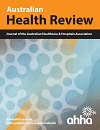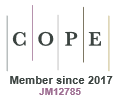AH24300The role of Medicare policy in fertility treatment decisions: perceptions of Australians considering, undertaking or who have undertaken medically assisted reproduction treatment
What is known about the topic? Fertility treatment can be expensive and not all people who require fertility treatment can access financial assistance from Medicare. What does this paper add? For those eligible for assistance, Medicare enhances accessibility and the amount of treatment undertaken due to increased affordability. People also alter their treatment plans based on Medicare policy. What are the implications for practitioners? The findings support calls for changes to Medicare eligibility to enable equitable access to fertility treatment and a pathway to parenthood for all Australians.





